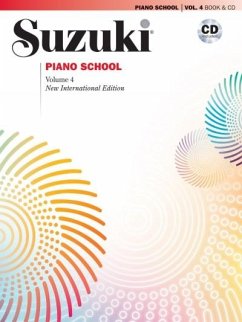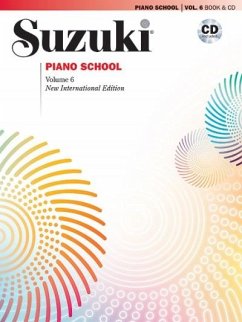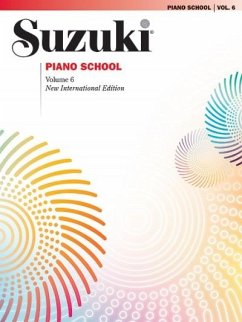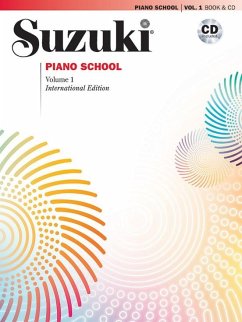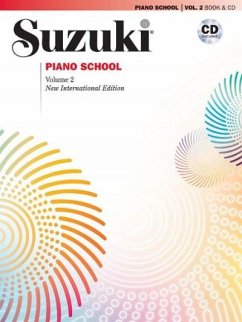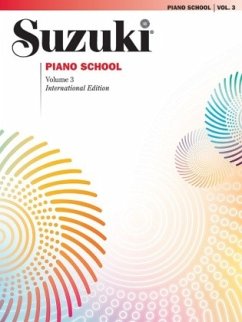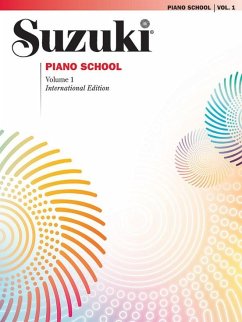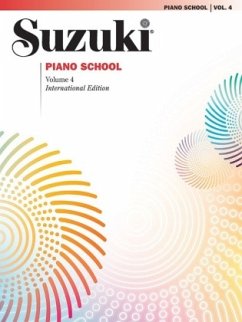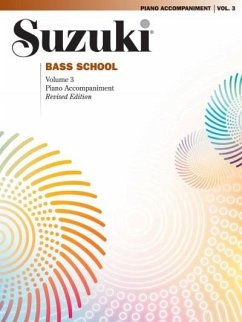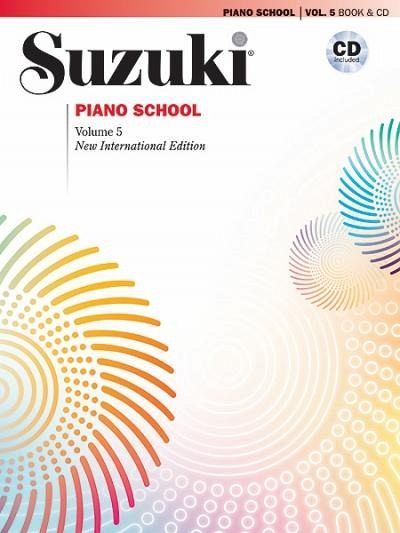
Suzuki Piano School, Vol 5
Book & CD
Solo: Azuma, Seizo
Versandkostenfrei!
Versandfertig in 3-5 Tagen
33,95 €
inkl. MwSt.

PAYBACK Punkte
0 °P sammeln!
The New International Edition of Suzuki Piano School, Volume 5, includes French, German and Spanish translations as well as a newly recorded CD performed by internationally renowned recording artist Seizo Azuma. Now the book and CD can be purchased together or separately. The contents have changed to include Romantic pieces: Schumann's "About Foreign Lands and People" and Chopin's "Waltz in A Minor." Daquin's "The Cuckoo" has been moved here from Book 6. Schumann's "First Loss" and "Siciliana" as well as J. S. Bach's "Prelude in C" have been permanently removed. Titles: Für Elise, WoO 59 (Bee...
The New International Edition of Suzuki Piano School, Volume 5, includes French, German and Spanish translations as well as a newly recorded CD performed by internationally renowned recording artist Seizo Azuma. Now the book and CD can be purchased together or separately. The contents have changed to include Romantic pieces: Schumann's "About Foreign Lands and People" and Chopin's "Waltz in A Minor." Daquin's "The Cuckoo" has been moved here from Book 6. Schumann's "First Loss" and "Siciliana" as well as J. S. Bach's "Prelude in C" have been permanently removed. Titles: Für Elise, WoO 59 (Beethoven) Old French Song, from the Album for the Young, Op. 39, No. 16 (Tchaikovsky) Invention No. 1 in C Major, BWV 772, from 15 Two-Part Inventions (J. S. Bach) Sonatina in F Major, Anh. 5, No. 2 (Beethoven) About Foreign Lands and People, from Scenes from Childhood (Schumann) Sonata in C Major (Allegro con brio; Adagio; Allegro), Hob. XVI/35 (Haydn) Waltz in A Minor, Op. posthumous (Chopin) The Cuckoo (Daquin).
Dieser Artikel kann nur an eine deutsche Lieferadresse ausgeliefert werden.



